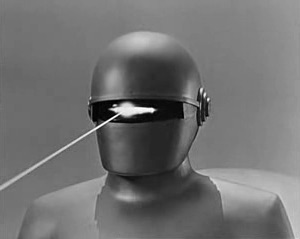I started experiencing cloudy vision several months ago and have two risk factors for retinal damage: High blood sugar (most likely exacerbated by the steroids I take along with my maintenance drug, Kyprolis), and of course multiple myeloma.
Medicare does not cover routine eye exams, but they do cover “medically necessary” eye exams by an ophthalmologist.
Does anyone have any advice about how to Medicare coverage for a retinal exam in a situation such as mine? I have found a retinal specialist who accepts Medicare assignment, but wonder if a referral from my oncologist is necessary. Or is it enough to tell the ophthalmologist why I am having the exam done in order to establish “medical necessity”?
Thanks for any input.
 Forums
Forums
-

MrPotatohead - Name: MrPotatohead
- Who do you know with myeloma?: Me
- When were you/they diagnosed?: March, 2015
- Age at diagnosis: 65
Re: Medicare and retinal eye exams
Cloudy vision can be multiple things. First of many possibilities would be cataracts. Macular degeneration is another, mostly age-related malady, though, it does not necessarily begin with cloudy vision. Either way, there are two kinds of macular degeneration. Neither cataracts or macular degeneration have anything to do with diagnoses of multiple myeloma or blood sugar.
Medicare is great for an annual visit with an ophthalmologist. A referral is not required, only if the ophthalmologist requires / requests it. The ophthalmologist is really the only one who can determine the health of your eyes, aside of a neuro-ophthalmologist. Best!
Medicare is great for an annual visit with an ophthalmologist. A referral is not required, only if the ophthalmologist requires / requests it. The ophthalmologist is really the only one who can determine the health of your eyes, aside of a neuro-ophthalmologist. Best!
-

ZippyZelda - Name: ZippyZelda
- Who do you know with myeloma?: Spouse
Re: Medicare and retinal eye exams
Mr PH,
Any visit stemming from your situation would be far from a "routine eye exam". It would be a medically-indicated eye exam because of your symptom of decreased vision. Medicare would cover your visit, in the same way as if you saw a cardiologist for chest pain.
The typical route is to see a general ophthalmologist first, rather than assuming that cloudy vision is due to a retinal problem, since there are other conditions that could cause your symptoms, including some that a retinal specialist may not be best equipped to diagnose or handle (for example, steroid-induced cataracts).
Hope this helps,
Alan B
Any visit stemming from your situation would be far from a "routine eye exam". It would be a medically-indicated eye exam because of your symptom of decreased vision. Medicare would cover your visit, in the same way as if you saw a cardiologist for chest pain.
The typical route is to see a general ophthalmologist first, rather than assuming that cloudy vision is due to a retinal problem, since there are other conditions that could cause your symptoms, including some that a retinal specialist may not be best equipped to diagnose or handle (for example, steroid-induced cataracts).
Hope this helps,
Alan B
Re: Medicare and retinal eye exams
Steroid induced cataracts are very normal. Corneal inflammation causes blurry vision similar to cataracts and can also be caused by the steroids. Your ophthalmologist will always code an appointment as medical, if necessary, in order to facilitate insurance payments. As mentioned above, it probably is not a retinal related problem. Good luck, go soon. Debra
-

Hummingbird
Re: Medicare and retinal eye exams
I see an ophthalmologist on a regular basis due to some problems that have persisted since having shingles in one eye a few years ago. The only part of my visits that aren't covered by Medicare is when my eyes are refracted for new glasses. Everything else is covered.
I agree with everyone else that you should start with a general ophthalmologist for a baseline visit. That doctor will refer you to a specialist if it is needed.
Good luck,
Nancy in Phila
I agree with everyone else that you should start with a general ophthalmologist for a baseline visit. That doctor will refer you to a specialist if it is needed.
Good luck,
Nancy in Phila
-

NStewart - Name: Nancy Stewart
- Who do you know with myeloma?: self
- When were you/they diagnosed?: 3/08
- Age at diagnosis: 60
Re: Medicare and retinal eye exams
Thank you very much, everyone, for all of your input.
I should have mentioned that I already know I have a cataract in my left eye. However, the cloudiness is in my right eye, too, and I had a cataract there taken care of ten years ago. That’s when I found out about the cataract in my left eye.
Since the cloudiness is in both eyes, one of which has an artificial lens, it can’t be due to cataracts.
Good advice, however, to start with an opthalmologist.
I should have mentioned that I already know I have a cataract in my left eye. However, the cloudiness is in my right eye, too, and I had a cataract there taken care of ten years ago. That’s when I found out about the cataract in my left eye.
Since the cloudiness is in both eyes, one of which has an artificial lens, it can’t be due to cataracts.
Good advice, however, to start with an opthalmologist.
-

MrPotatohead - Name: MrPotatohead
- Who do you know with myeloma?: Me
- When were you/they diagnosed?: March, 2015
- Age at diagnosis: 65
6 posts
• Page 1 of 1
Return to Insurance & Patient Assistance Programs
